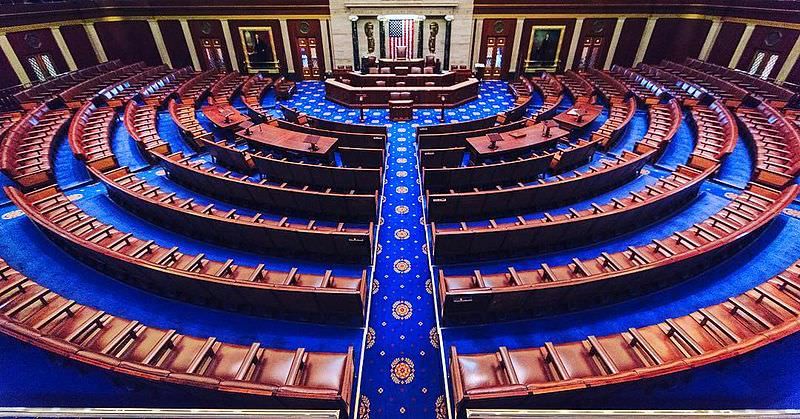The U.S. House Judiciary Committee on Wednesday approved a sweeping cannabis reform bill by a vote of 24-10, a milestone moment that moves the multibillion-dollar marijuana industry a step closer to federal legalization.
If adopted into law, the social justice-focused Marijuana Opportunity Reinvestment and Expungement (MORE) Act of 2019 could open up huge business opportunities for legal marijuana nationwide, similar to the federal legalization of hemp.
But the measure isn’t likely to make it to the full House for consideration until 2020, at the earliest.
Several Republican members of the committee argued that it would make more sense for the committee instead to move forward the STATES Act, which they said has more bipartisan support in the Senate. The STATES (Strengthening the Tenth Amendment Through Entrusting States) Act would fully protect state-legal marijuana programs from federal interference.
But the committee rejected Republican lawmakers’ efforts to incorporate the STATES Act.
While legalizing marijuana federally by removing it from the federal Controlled Substances Act, the MORE Act would allow states to continue to choose how to regulate a commercial marijuana industry.
“This committee vote is a historic step forward for cannabis policy reform at the federal level,” Neal Levine, CEO of the Cannabis Trade Federation, said in a statement.
“The MORE Act would ensure cannabis consumers and businesses are treated fairly under the law. It would also bolster state and industry efforts to promote diversity within the cannabis business community, while helping individuals and communities adversely impacted by the war on drugs.”
As currently written, MORE would institute a 5% federal retail sales tax on marijuana products.
Revenues would be targeted to empower the individuals and communities most impacted by the war on drugs.
The revenues would, among other things, go to job training and small-business loans, as well as efforts to minimize barriers to marijuana licensing, which is becoming increasingly controlled by multistate operators or companies run by wealthy, mostly white men.
GOP complains legislation rushed
Ranking Republican Doug Collins of Georgia complained that it wasn’t fair to consider a bill that was rushed into a markup the week before Thanksgiving without a specific hearing devoted to it.
He characterized the bill as a “political statement” and a measure “devoid of bipartisan support.”
House Judiciary Chair Jerrold Nadler, a Democrat from New York who introduced the comprehensive reform bill in July, said at a news conference Tuesday he is hopeful the bill could be passed by the full House in the current congressional session, which ends after the 2020 elections on Jan. 3, 2021.
Nadler reportedly wants to try to persuade other committees that have jurisdiction to waive their rights, thus expediting the bill’s movement through the House.
But Washington insiders said such a move will be difficult because seven other committees have jurisdiction, including Ways and Means, which has oversight of tax legislation and typically would do a “scoring” of the bill.
Scoring is the process of estimating the revenue that would be generated from a measure as well as potential costs or revenue losses.
Tax-revenue distribution a sticking point
There already was disagreement Wednesday over how tax revenues should be applied, with Tom McClintock, a California Republican, wanting half the revenues to go into the federal government’s general fund and the other half to local law enforcement.
Matt Gaetz of Florida, the sole Republican co-sponsor of the House bill, countered the argument that the committee is “rushing” the measure. He noted that federal reform actually has been going slowly, with constituents dragging lawmakers forward.
Polls show that two-thirds of Americans favor marijuana legalization, with support across the board.
But Gaetz said the panel shouldn’t be just considering the MORE Act, which is focused on social and criminal justice, but also the STATES Act.
While MORE is the most comprehensive bill to make it this far, cannabis banking reform passed the full House in September on a strong, bipartisan vote.
The staff of Senate Banking Chair Michael Crapo, an Idaho Republican, has been working on changes to the House version, known as the SAFE Banking Act.
Crapo said previously that he would like his committee to consider cannabis banking reform before year-end, but insiders said that timing now may be difficult, in part, because of the impeachment inquiry of President Donald Trump.
Jeff Smith can be reached at jeffs@mjbizdaily.com







